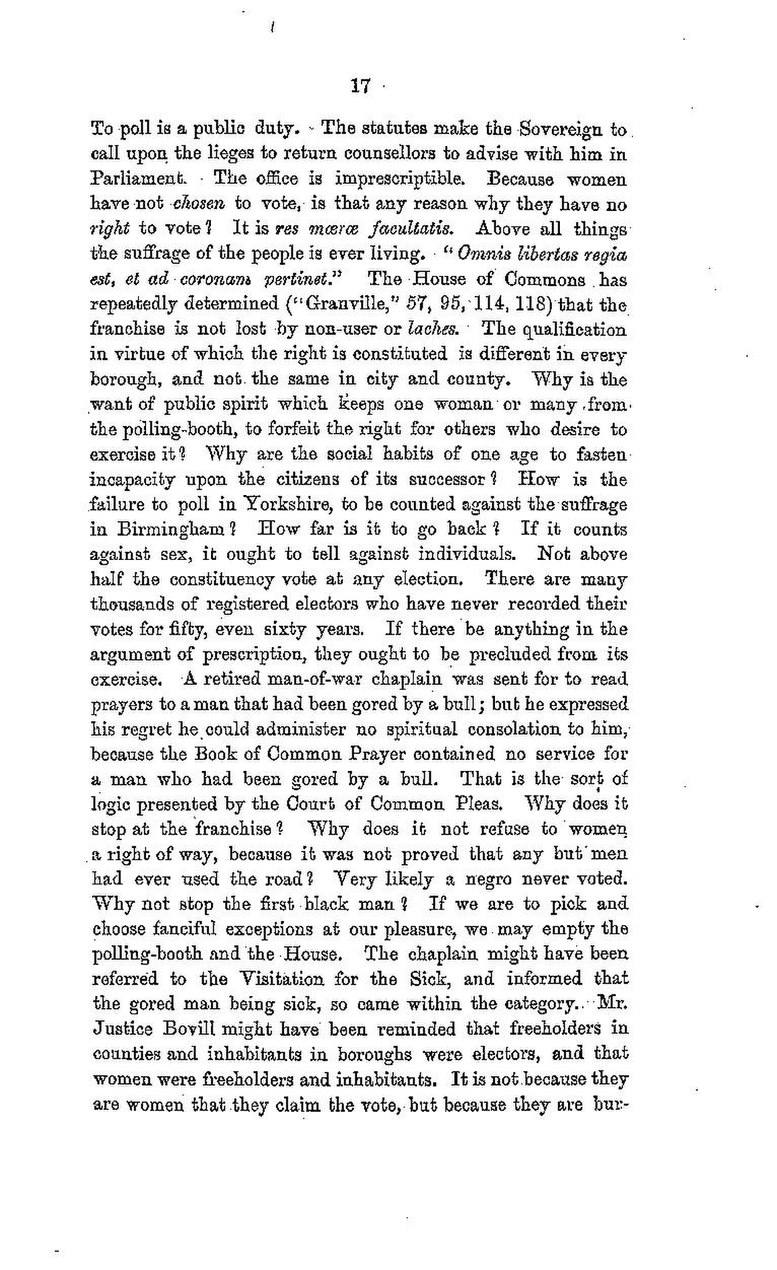17
To poll is a public duty. The statutes make the Sovereign to call upon the lieges to return counsellors to advise with him in Parliament. The office is imprescriptible. Because women have not chosen to vote, is that any reason why they have no right to vote? It is res mæaræ facultatis. Above all things the suffrage of the people is ever living. "Omnis libertas regia est, et ad coronam pertinet." The House of Commons has repeatedly determined ("Granville,"57, 95, 114, 118) that the franchise is not lost by non-user or laches. The qualification in virtue of which the right is constituted is different in every borough, and not the same in city and county. Why is the want of public spirit which keeps one woman or many from the polling-booth, to forfeit the right for others who desire to exercise it? Why are the social habits of one age to fasten incapacity upon the citizens of its successor? How is the failure to poll in Yorkshire, to be counted against the suffrage in Birmingham? How far is it to go back? If it counts against sex, it ought to tell against individuals. Not above half the constituency vote at any election. There are many thousands of registered electors who have never recorded their votes for fifty, even sixty years. If there be anything in the argument of prescription, they ought to be precluded from its exercise. A retired man-of-war chaplain was sent for to read prayers to a man that had been gored by a bull; but he expressed his regret he could administer no spiritual consolation to him, because the Book of Common Prayer contained no service for a man who had been gored by a bull. That is the sort of logic presented by the Court of Common Pleas. Why does it stop at the franchise? Why does it not refuse to women a right of way, because it was not proved that any but men had ever used the road? Very likely a negro never voted. Why not stop the first black man? If we are to pick and choose fanciful exceptions at our pleasure, we may empty the polling-booth and the House. The chaplain might have been referred to the Visitation for the Sick, and informed that the gored man being sick, so came within the category. Mr. Justice Bovill might have been reminded that freeholders in counties and inhabitants in boroughs were electors, and that women were freeholders and inhabitants. It is not because they are women that they claim the vote, but because they are bur-
